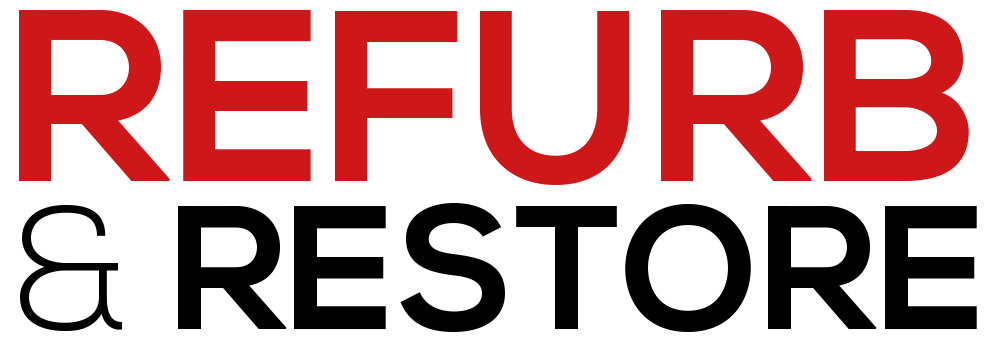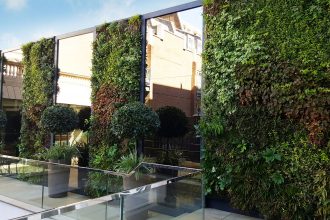Renovate smart: how energy efficiency in dwellings boosts sustainability and user experience

Renovation projects in the residential sector present a unique opportunity to not only refresh aesthetics but also to enhance operational efficiency and reduce energy consumption. Improving efficiency and comfort can go hand in hand with improving your EPC rating and allowing better governance over the operations of your assets.

Why focus on energy efficiency in renovations?
With rising energy costs and increasing environmental awareness, energy efficiency is no longer optional—it’s essential. Renovating with smart technology solutions allows specifiers to:
- Reduce operational costs through intelligent energy management.
- Meet sustainability goals and appeal to eco-conscious guests.
- Meet and surpass new legislation and government targets.
- Enhance owner/tenant/user comfort with personalized room controls.
- Increase property value with modern, future-proof installations.
Technology designed for renovations can integrate into existing infrastructures, making it suitable for refurbishment projects without extensive rewiring or disruptive construction.

How technology supports residential renovations
An extensive range of smart devices and systems provides solutions suited to the residential industry’s specific needs:
- Climate control systems that adjust heating, cooling, and ventilation for maximum efficiency.
- Lighting automation that reduces unnecessary energy use while enhancing ambiance.
- Room management systems that allow users to control their environment from intuitive touch panels.
- Customizable switches and outlets, including options with USB ports for modern connectivity.
- Integration with building management systems (BMS) and IoT platforms for centralized control, for MDUs and BTR schemes such as PBSAs.
Sustainability meets comfort
Modern and future homeowners, students and tennants value sustainability just as much as comfort. Technology enables homes to provide personalized experiences while maintaining a strong commitment to the environment. Features commonly implemented in renovations include:
- One-touch climate and lighting settings.
- Automated blinds for optimal natural light use and solar gain control.
- Energy-saving modes when rooms are unoccupied.
These solutions not only enhance guest satisfaction but also significantly cut down energy consumption, helping properties reduce their carbon footprint.

Why KNX technology matters in residential renovations
When it comes to smart building automation, KNX technology stands out as the leading international standard. Its widespread adoption ensures long-term compatibility, scalability, and the ability to integrate devices from various manufacturers. For dwellings, KNX offers several advantages:
- Centralized control of lighting, climate, and shading systems for improved energy management and ease of use.
- Future-proof infrastructure that evolves with the building’s needs.
- Enhanced user experience through simple room control and personalized settings. Integration for voice commands via VA’s such as Alexa.
- Lower operational costs by optimizing energy use through automation.
- Lower energy bills as above.
Optimizing room management with BMS integration
For larger installations such as apartmnet blocks, student accommodation etc, integration with building management systems (BMS) provides operators with valuable tools to streamline building operations. Key benefits include:
- Real-time monitoring of energy consumption across rooms and common areas.
- Automated room status updates, such as occupancy detection and leak and window detection, usage data.
- Improved maintenance planning through data-driven insights.
- Energy savings by automatically adjusting settings in unoccupied rooms.

Residential sector trends and long-term benefits
Investing in energy-efficient renovations not only contributes to environmental goals but also improves overall user satisfaction, tenant retention and operational efficiency. With increase in energy costs and a growing push by legislators to reduce carbons and energy consumption, developers that prioritize efficiency and smart technology are better positioned to stay competitive and meet future industry standards.
Among the companies leading the way in this field is Zennio, a global provider of smart building solutions with a strong track record in the hospitality, residential and commercial sectors. With presence in multiple international markets, Zennio design and manufacture a comprehensive range of products that support energy efficiency, enhance user comfort, and streamline operations. Its portfolio includes advanced climate control systems, customizable room management solutions, and versatile devices designed to integrate seamlessly with KNX and BMS platforms. Zennio’s experience in large-scale projects across Europe and indeed the world, demonstrates its ability to deliver solutions that meet the evolving needs of the industry while promoting sustainability and long-term value.


